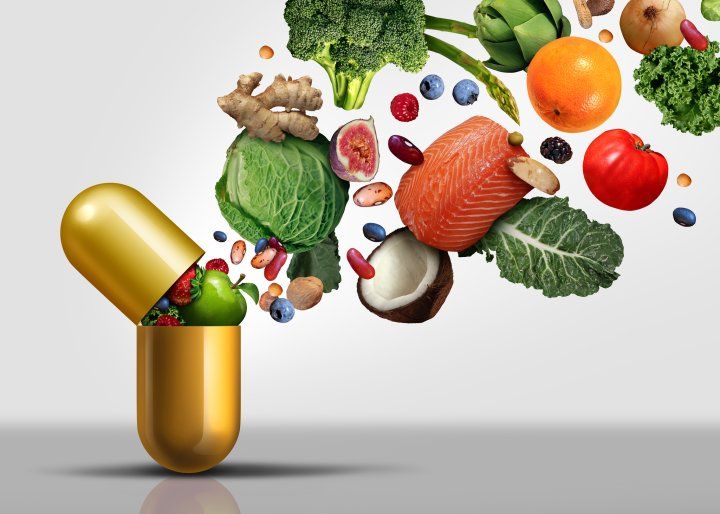
FAQs About PCOS Natural Supplements You Must Know
Share
Living with PCOS (Polycystic Ovary Syndrome) can be confusing, overwhelming, and often frustrating. There’s no one-size-fits-all solution, and managing symptoms usually involves making changes to your lifestyle, diet, and sometimes medication. But over the years, more and more people have started turning to natural supplements as part of their holistic approach to managing PCOS—and with good reason.
If you're exploring natural remedies or wondering whether supplements can really help with PCOS, you're not alone. In this article, we’ll go over some of the most frequently asked questions about PCOS natural supplements to help you make informed decisions about your health.
1. Can supplements really help with PCOS?
Yes, supplements can play a supportive role in managing PCOS symptoms—but they’re not a magic fix. Think of them as a tool in your toolbox. Along with a healthy diet, regular exercise, stress management, and possibly medication (depending on your condition), supplements can help balance hormones, regulate cycles, improve fertility, and reduce insulin resistance.
That said, always talk to your doctor or a qualified health practitioner before adding new supplements to your routine, especially if you're already taking medication.
2. How long do supplements take to work for PCOS?
There’s no universal timeline, but most people start noticing changes after 3 to 6 months of consistent use. That might feel slow, but remember—PCOS is a hormonal condition that takes time to balance. Keep in mind that everyone’s body responds differently, and your results might vary depending on your symptoms, lifestyle, and the type of supplement you take.
3. Are there any side effects of using supplements for PCOS?
Just because something is natural doesn’t always mean it's safe in every situation. While many PCOS supplements are well-tolerated, side effects can still occur—especially with high doses or when combined with other medications.
Here are a few things to watch out for:
- Inositol: Usually safe, but may cause mild stomach discomfort in some.
- Berberine: Can cause low blood sugar, stomach upset, or interfere with certain medications.
- Zinc: High doses may lead to nausea or copper deficiency.
- Vitamin D: Excess can lead to toxicity if not monitored.
Always stick to recommended doses and check with your healthcare provider before starting.
4. Can natural supplements help with fertility in PCOS?
Yes! Many women with PCOS struggle with irregular ovulation, which makes getting pregnant more challenging. Supplements like inositol, vitamin D, and omega-3s have been shown to improve ovulatory function and increase the chances of conception.
Myo-inositol, in particular, is commonly used by women trying to conceive as it helps regulate insulin and promote regular ovulation.
5. Do I need to take all of these supplements?
Definitely not. You don’t need a shopping list of 10 different pills to see improvement. The key is to target your main symptoms.
For example:
- If your main issue is irregular periods and insulin resistance, inositol and vitamin D may be ideal.
- If you have acne and hirsutism, zinc and spearmint might help.
- If you’re trying to conceive, myo-inositol and omega-3s are great choices.
A functional medicine doctor or a nutritionist specializing in hormone health can help you customize your supplement routine.
6. Are there any supplements to avoid with PCOS?
Most common PCOS supplements are safe, but there are some general rules:
- Avoid megadoses of any vitamin or mineral unless prescribed.
- Be cautious with herbs like licorice root or vitex if you're on hormonal birth control or fertility medications—they can interfere.
- Watch out for proprietary blends that don’t list exact doses on the label.
Stick to reputable brands and avoid anything that claims to be a "cure" for PCOS.
7. Can I get all the nutrients I need from food instead?
Whole foods are always the best place to start. A nutrient-dense diet filled with vegetables, lean protein, healthy fats, and complex carbs will support your body naturally. But in some cases—like with vitamin D or inositol—it’s difficult to get therapeutic amounts from food alone, which is where supplements can help bridge the gap.
Supplements should complement, not replace, a healthy lifestyle.
Final Thoughts
Living with PCOS isn’t easy, but you don’t have to go it alone—or rely solely on medications. Natural supplements can be powerful allies when chosen wisely and used consistently.
Whether you’re trying to manage acne, lose weight, regulate your periods, or improve fertility, there are natural options available that might help you feel more in control of your body.
As always, listen to your body, do your research, and work with a professional to find the right combination that works for you. Everyone’s journey with PCOS is different, and what works for someone else might not be right for you—and that’s okay.
Your body deserves patience, care, and support.